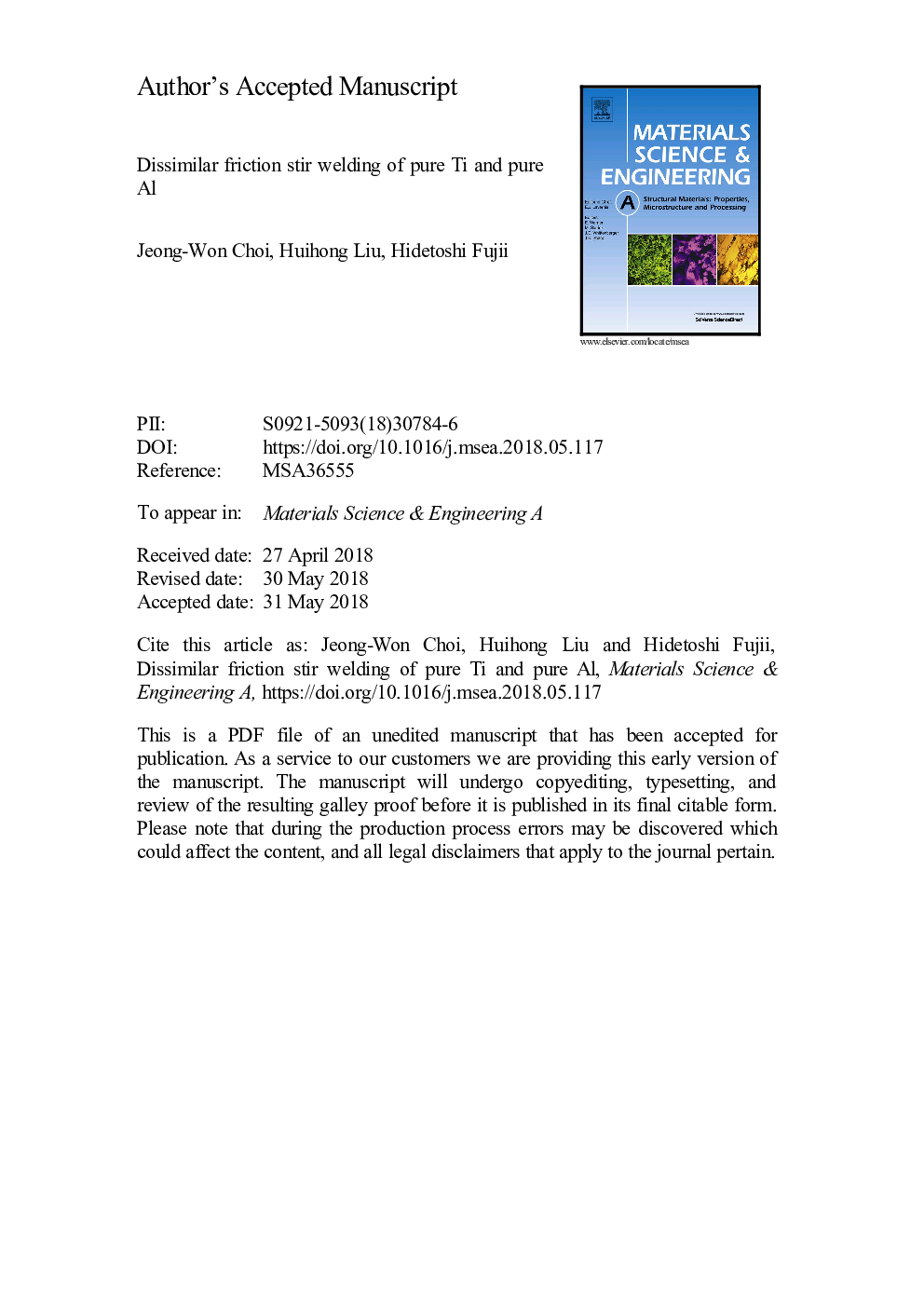| Article ID | Journal | Published Year | Pages | File Type |
|---|---|---|---|---|
| 7971765 | Materials Science and Engineering: A | 2018 | 27 Pages |
Abstract
Friction stir welding (FSW), an innovative solid-state joining technique, was performed on the dissimilar materials, i.e., pure Ti and pure Al. The welding parameters were optimized in order to obtain a sound dissimilar Ti/Al joint and the effects of the welding parameters including the probe offset and the tool rotation speed on the microstructure, mechanical properties and fracture behavior of the dissimilar joints were systematically investigated. With the increasing probe offset and the tool rotation speed, both the thickness of the intermetallic compound layers generated at the Ti/Al weld interface and the amount of Ti fragments formed inside the Al stir zone increased. A large amount of Ti fragments formed inside the Al stir zone results in a reduction in the tensile strength of the dissimilar joints due to the formation of defects near the weld interface. The dissimilar Ti/Al joint fabricated at a lower probe offset and the optimized tool rotation speed exhibits a superior tensile strength due to the suppression of the Ti fragments formation that interferes with the material flow during the FSW and the formation of the intermetallic compound layer having a proper thickness at the weld interface.
Related Topics
Physical Sciences and Engineering
Materials Science
Materials Science (General)
Authors
Jeong-Won Choi, Huihong Liu, Hidetoshi Fujii,
